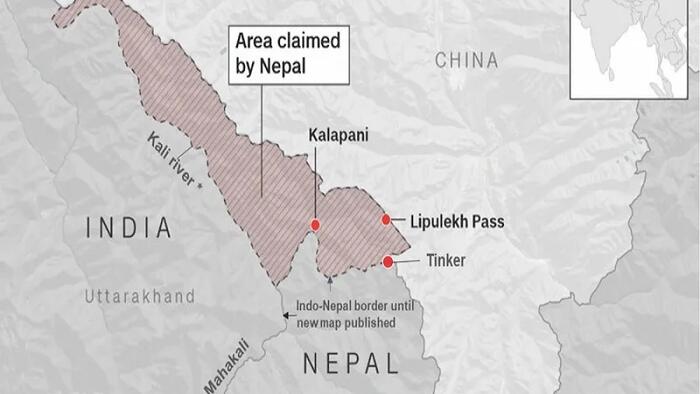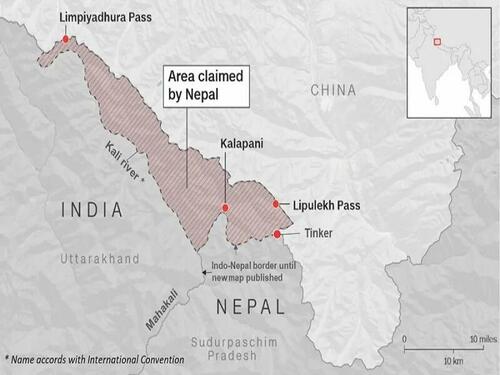


Authored by Andrew Korybko via Substack,
The student-driven riots that were putatively sparked by the state’s banning of social media after top platforms failed to register in line with the law might be a front for ultra-nationalist extremists backed by the West in a remix of summer 2024’s Bangladeshi regime change model.
Nepal formally complained in late August after China and India agreed to resume their border trade through the Lipulekh crossing. Newly ousted Prime Minister KP Sharma Oli also brought it up during his meeting with President Xi Jinping on the sidelines of the SCO Summit in Tianjin. Kathmandu lays claim to this territory and a mountainous sliver beyond per a colonial-era dispute but only rigorously began pursuing it in the run-up to summer 2020’s Sino-Indo clashes.
This context suggests that Nepal expected Chinese backing against India, calculating that it could benefit from this via privileged economic and military support or at the very least by profiting off of facilitating their trade if their bilateral dispute kept border crossings closed indefinitely. What Oli (who was Prime Minister back then and once again till recently after a three-year hiatus) couldn’t have foreseen, just like mostly everyone else, was the Sino-Indo rapprochement that the US just inadvertently brought about.
He's a communist with Machiavellian characteristics as proven by the aforementioned foreign policy calculation and his hitherto crafty politicking, but he’s also somewhat of an idealist who simply couldn’t countenance the realpolitik involved in fellow communist China’s latest own calculations vis-à-vis India. Simply put, China’s interests in the present context are best served by prioritizing India’s interests over Nepal’s in those two’s dispute, which appears to have truly caught Oli and his government off guard.
Nevertheless, China’s mercantile move doesn’t come at any tangible expense to Nepal since it hasn’t controlled this territory for over 200 years, but the political consequences might possibly push Nepal to recalibrate its balancing act by leaning more on the US. That’s precisely what India did from 2015 till just recently due to the China-Pakistan Economic Corridor, the flagship project of China’s Belt & Road Initiative, passing through Pakistani-controlled Kashmiri territory that India claims as its own.
India’s pro-US foreign policy recalibration took the form of them comprehensively expanding economic and military ties, while Nepal’s might focus more on developmental assistance such as the almost-cut “Millennium Challenge Corporation”, which is aimed at countering Sino-Indo influence there. Geography limits the extent to which a potentially pro-US Nepal could become a wedge between China and India, but it could still at minimum turn into a bastion of hostile “NGO” operations after Oli’s surprise ouster.
The student-driven riots that were putatively sparked by the state’s banning of social media after top platforms failed to register in line with the law might be a front for ultra-nationalist extremists backed by the West in a remix of summer 2024’s Bangladeshi regime change model. It therefore can’t be ruled out that the new Nepali authorities might be tasked by the US with weaponizing their country’s border dispute with India as punishment for Delhi refusing to submit to Washington’s demands on Russia.
All in all, there are three takeaways from the latest twist in this dispute that suspiciously preceded Oli’s ouster:
1) China is prioritizing India’s interests over Nepal’s in furtherance of its own;
2) Nepalis might be manipulated by the US against both as a result; and
3) this could be weaponized by the new authorities.
The best-case scenario is that they prioritize economic and anti-corruption reforms instead of letting themselves be exploited as geopolitical pawns, but it’s too early to say exactly what they’ll do.
Views expressed in this article are opinions of the author and do not necessarily reflect the views of ZeroHedge.

